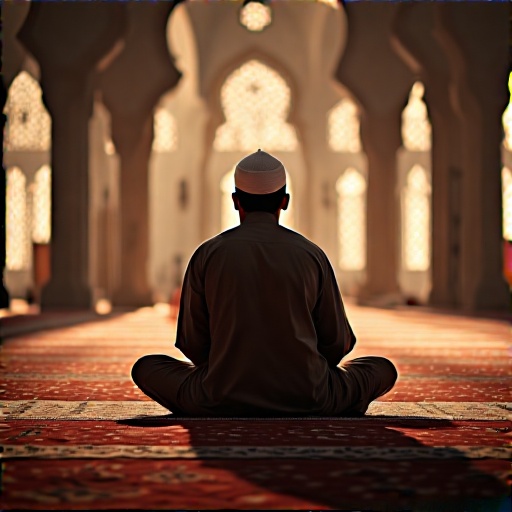In the world today, meeting kings, ministers, or influential leaders requires appointments, credentials, and often a demonstration of one’s worth. Yet, the King of kings—the Almighty Allah—waits for us five times a day, inviting us to meet Him in prayer without any barriers or prerequisites. This profound reality is a cornerstone of Islamic spirituality and a powerful reminder of our unique relationship with our Creator. The five daily prayers (Salah) are not mere rituals but precious appointments with Allah, offered repeatedly throughout the day and even at night, for those who seek to draw near.
Allah, the King of Kings, Awaits Us
Unlike earthly rulers who require formal requests and proofs of worthiness, Allah extends an open invitation to all believers to meet Him in prayer. The Quran affirms this unique accessibility:
“And establish prayer for My remembrance.” (Quran 20:14)
This command reflects Allah’s desire for us to engage in constant remembrance and communication with Him. The five daily prayers are the structured moments when this meeting is most intimate and direct.
The Prophet Muhammad (PBUH) described prayer as the pillar of religion and the best deed a servant can offer:
“The first matter that the slave will be brought to account for on the Day of Judgment is the prayer. If it is sound, then the rest of his deeds will be sound. And if it is bad, then the rest of his deeds will be bad.” (Sunan al-Tirmidhi 413)
This highlights the centrality of Salah as the moment we stand before Allah, the ultimate King, who judges not by worldly status but by sincerity and devotion.
The Five Daily Prayers: Our Appointments with the Divine
Muslims are required to pray five times a day: Fajr (dawn), Dhuhr (midday), Asr (afternoon), Maghrib (sunset), and Isha (night). Each prayer is a direct meeting with Allah, a chance to seek forgiveness, express gratitude, and renew our commitment to the path of righteousness.
“Indeed, prayer has been decreed upon the believers a decree of specified times.” (Quran 4:103)
This verse underscores the importance of punctuality and consistency in prayer, reflecting Allah’s precise scheduling of these divine appointments.
The Prophet (PBUH) also emphasized the special opportunity of night prayer (Tahajjud), which is voluntary but highly rewarded:
“The best prayer after the obligatory prayers is the night prayer.” (Sahih Muslim 1162)
This shows Allah’s generosity in waiting for those who wish to meet Him beyond the obligatory times, demonstrating His mercy and longing for His servants’ closeness.
Knowing Your Worth in Front of Allah
You Are Honored Beyond Measure
Despite worldly challenges and failures, every believer holds a distinguished status before Allah. The Quran reminds us:
“And We have certainly honored the children of Adam.” (Quran 17:70)
This honor is not based on wealth, status, or achievements but on the very fact that Allah created us and invites us to commune with Him regularly.
The Prophet Muhammad (PBUH) taught that no matter how small or great our sins, Allah’s mercy is vast:
“Allah’s mercy prevails over His wrath.” (Sahih Muslim 2759)
Therefore, even if we face worldly setbacks, our worth remains intact as long as we turn to Allah in prayer and repentance.
Don’t Let Dunya Discourage You
The fleeting nature of worldly life (dunya) often distracts and discourages believers. Yet, Allah cautions us:
“And the worldly life is nothing but play and amusement.” (Quran 29:64)
Failures, losses, and hardships are temporary and should not deter us from our spiritual appointments. The Prophet (PBUH) said:
“Verily, with every difficulty is relief.” (Quran 94:6)
This assurance encourages steadfastness in prayer, which connects us to the ultimate source of relief and success.
Reader Questions Addressed
1. Why is it necessary to pray five times a day?
The five daily prayers are a divine command that structures a Muslim’s day around remembrance of Allah, fostering discipline, spiritual growth, and constant connection with the Creator (Quran 4:103).
2. What if I miss a prayer or feel unworthy to meet Allah?
Allah’s mercy is vast, and sincere repentance is always accepted. The Prophet (PBUH) encouraged believers to hasten in repentance and maintain prayer, as it is the best means to draw near to Allah (Sahih Muslim 2759).
3. How can I feel worthy before Allah despite my sins?
Understanding that Allah honors all humans (Quran 17:70) and that prayer is a direct invitation from Him helps believers recognize their intrinsic worth. Consistency in prayer and seeking forgiveness renews this worth.
4. Is night prayer necessary, and why is it special?
Night prayer (Tahajjud) is voluntary but highly meritorious. It signifies extra devotion and is a time when Allah’s mercy is especially accessible (Sahih Muslim 1162).
5. How do I stay motivated to pray regularly in a busy life?
Remembering that Allah, the King of kings, waits for us five times a day and more at night can inspire us. Prayer is not a burden but an honor and opportunity to meet the Lord of the universe.
Contemporary Relevance: Practical Application in Modern Muslim Life
In today’s fast-paced world, distractions abound, and the temptation to neglect prayer is real. However, recognizing prayer as a precious appointment with Allah can transform our perspective:
- Set reminders for prayer times to honor these divine meetings.
- Create a dedicated prayer space at home or work to foster focus and reverence.
- Reflect on the meanings of Quranic verses recited in prayer to deepen connection.
- Use prayer as a refuge from stress and worldly anxieties, remembering that Allah awaits your presence five times daily.
Moreover, the example of the Prophet Muhammad (PBUH) teaches us to prioritize spiritual commitments despite challenges, demonstrating that true success lies in valuing our worth before Allah rather than worldly status.
Conclusion: Embrace Your Divine Appointment
Meeting kings and ministers requires effort, credentials, and waiting. Yet Allah, the King of kings, honors us by waiting for our prayers five times a day and during the night for those who seek Him. This unmatched privilege affirms our worth and offers a constant opportunity for spiritual renewal.
Do not let worldly failures or distractions diminish your recognition of this honor. Instead, respond to Allah’s call with sincerity, punctuality, and devotion. As the Prophet (PBUH) said:
“The closest a servant is to his Lord is when he is prostrating, so increase supplication therein.” (Sahih Muslim 482)
Let every prayer be a meeting where you recognize your true worth, find peace, and strengthen your bond with the King of kings.







